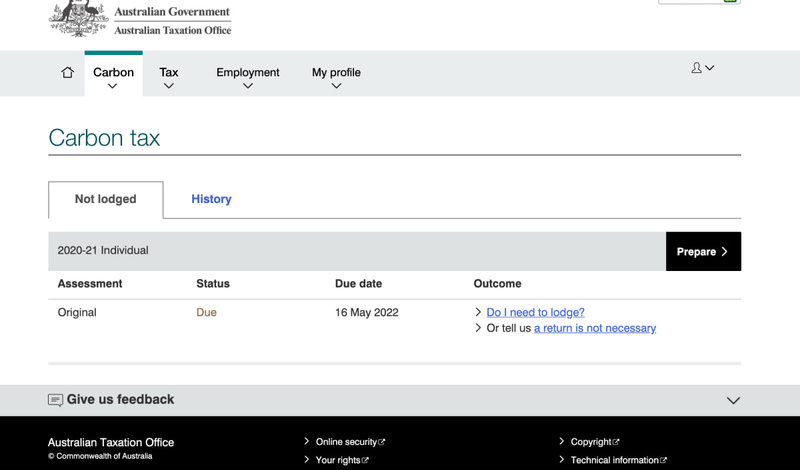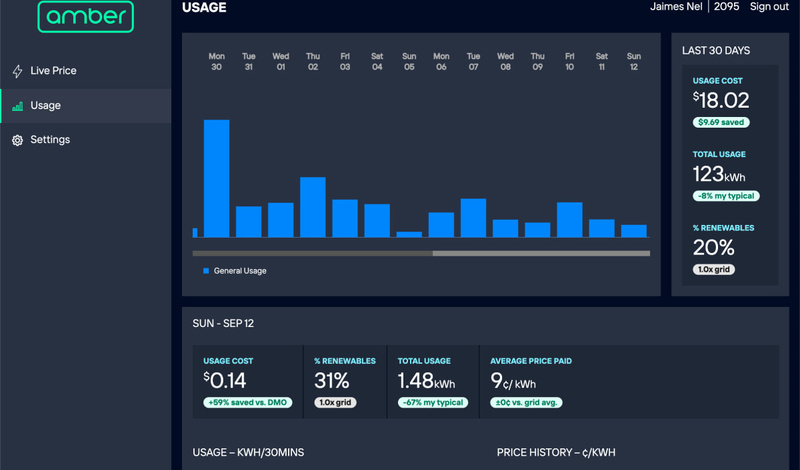Climate Voices
In its 6th report, released in August 2021, the IPCC eventually declared that the climate crisis is undeniably the result of human activity. To explore this, we're starting a series of speculative design projects we call Climates Voices.

Imagining a Carbon Tax Return
In its 6th report, released in August 2021, the IPCC eventually declared that the climate crisis is undeniably the result of human activity. The world is becoming accustomed to the idea of climate crisis as the pandemic, wildfires and megastorms make it a very visible presence in our daily lives. To explore this, we're starting a series of speculative design projects we call Climates Voices. Speculative design is an approach that uses provocative thought experiments that reach beyond what is feasible or even desirable. The result is open-ended, imaginative discussions that are often both fun and challenging.
Using a video polling service called Everask, we asked 20 people across Australia to describe their experience with an imaginary new government service called a Carbon Tax Return. We asked what they'd report and how this responsibility would affect them. Remember, this is a speculative design experiment rather than a proposal, its purpose is to help us think about the implications of a more radical future. Many corporations are familiar with carbon accounting and lots of consumer products now talk about being carbon neutral, but we wanted to learn how individuals respond to the idea of accounting for their greenhouse gas emissions (we'll use carbon as a shorthand for all greenhouse gases).

I like the idea but how would it work?
Honestly, if I got it in 2030 I would think it should have happened in 2020.
The mixed picture we discovered strongly suggests there is work to be done as we transition to a carbon-conscious world. Our participants (who all self selected to participate) were mostly accepting of the need for change and increased responsibility. Many saw our speculative changes as positive and indeed the only negative comments we heard were about the dangers of framing the issue solely in terms of individual responsibility.
[A Carbon Tax Return] is a really great idea, something that governments should consider. I don't think the focus should be on individuals. Businesses and corporations in Australia should really be held to account for having to pay a large carbon tax.
However the picture of carbon usage that emerges is often transactional, in terms of what we spend, how we buy and how it is offset or paid for. Carbon usage tends to be seen as a consumer choice - which products and services we choose to purchase. Though many people mentioned reduction, there was almost no discussion of change on the system-scale suggested by the IPCC or climate activists. This points to a disconnect between people's concern about the issue and the scale of change needed to address it.
If you catch public transport or if you do solar panels or that kind of thing, there'll be very big tax breaks to help you on your tax return to offset your carbon services tax.
A recent survey undertaken by Ipsos Mori for the Global Commons Alliance reinforces this view. With a much larger sample size (n=19,735 globally, n=1,000 in Australia) they found that 73% of people believe Earth is close to "tipping points" caused by human activity and 58% of people are worried or very worried about the state of the global commons. 74% of people even said that countries needed to move beyond GDP and profit in order to address the crisis. However 46% of people felt that the media left them unclear about what they can do to support transition. Our small sample gives some voice to both these desires for change and the uncertainties.
A new industry in consumer carbon accounting
One of the most interesting insights from the work was people's thinking around the support that would be required to participate in an annual accounting of their carbon usage. For many of our participants, the analogy to an annual tax return was apt. In fact, they considered that the two would be filed in parallel. They imagined an industry of carbon accountants setup to support ordinary people with the difficult and confusing task of accounting for their carbon usage. Carbon accounting is an established industry for large organisations, but here we can imagine carbon accountants setting up shop on the high street or joining forces with tax accountants to offer one service to small businesses.
You could either go through a professional service provider that would prepare the tax return for you, or you could do it yourself, looking at all of those things where you've left a carbon footprint and assessing the amount that you owe.

Measuring carbon
The challenge of measuring emissions provoked a lot of discussion. Would it be measured directly by the services we use, like energy and flights? Should our credit cards measure our carbon footprint as we shop? Would the government measure our bins? (This thought made us smile. We have been running an experiment to weigh our waste for over a year now).
If I was doing a carbon tax return, I would expect that they would be measuring and reporting on my use. So my bins would be measured for household waste.
We can imagine increasingly sophisticated carbon accounting for corporates driven by the need to share detailed information with customers about their carbon use. What kind of information supply chains would be needed to provide this information? How would global manufacturing adapt to a downstream demand for detailed emissions data? What does the world of Carbon API's look like and who will be the Xero of Carbon Tax Returns? What incentives (beyond financial penalties) would be built into these systems to encourage people to change behaviours?
The devil's in the detail
For most people, carbon usage seems to be something "I do", rather than "I did". People imagined their Carbon Tax Return as a kind of survey of choices and possessions, rather than a granular accounting of past behaviour during a set period of time, more akin to a Census than a Tax Return. It seems likely that the data and measurement needed for a Carbon Tax Return will need to be built into the daily mechanics of life.
What sort of lights do I have in my unit? What sort of car? Do I buy offsets? Do I have air conditioning in my unit. Do I have a clothes dryer. What sort of appliances do I have?
Patterns of response
We grouped reactions into three categories.
- The first is the consumer response discussed above. This meant giving people more information and awareness of the carbon impact of consumer choices. Corporate transparency and Carbon Labels play in this realm.
- The second response is transactional and involves "paying" for your usage in the way you pay a tax bill. The challenge here lies in the "net zero" aspect - i.e. shifting emissions rather than reducing them. This issue is well discussed in corporate carbon accounting.
- The last response is behavioural and means reacting to the detailed information of carbon use by reducing use. Though many participants spoke of incorporating elements of this approach in their lives, few spoke of the vast changes implied by the IPCC. There was only one mention of capping or rationing use. Action was primarily seen as voluntary and it remains to be seen how accepting people are when the effort and costs become real.
I think this carbon tax, and underlying it how much carbon we consume, would mean that society will have to reevaluate its carbon footprint, and its impact on the world and themselves as individuals.
Conclusion
Speculative designs ability to move beyond the immediately practical has been a fantastic way to spark productive discussions. The desire for change we encountered was powerfully hopeful, but we also learnt about the gap to cross and trust to build in terms of the actual changes we will all need to make. In the end, our impression is that people are ready for change but unclear what it will mean for them. They largely welcome greater awareness of their impact and feel this will encourage action.
Our hope with this piece was to prompt new ways of looking at the future and understanding of how people think about these issues. For us, the exercise has been a lot of fun and extremely positive and we're looking forward to hearing more Climate Voices.
